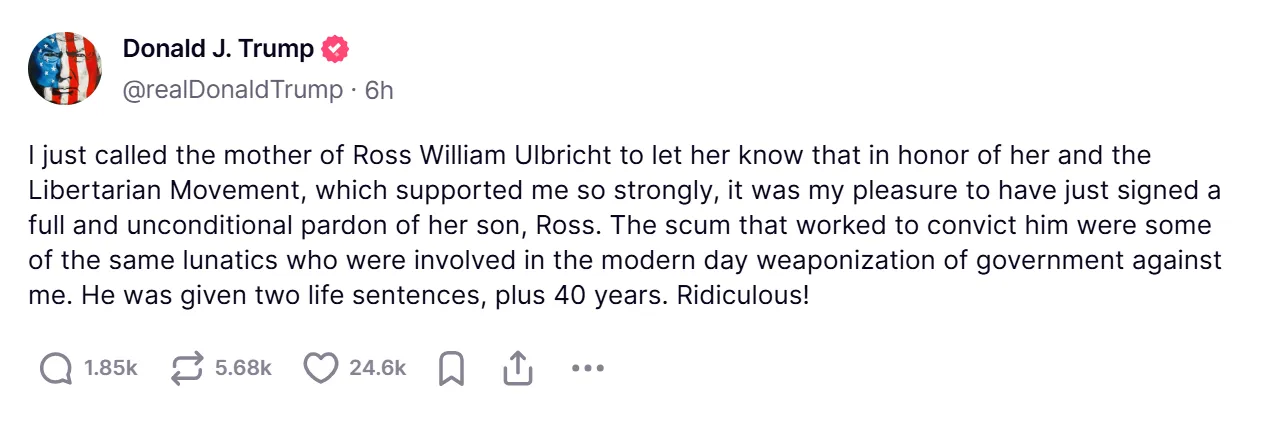Trump pardons Silk Road creator Ross Ulbricht
Bitcoin’s early icon must now decide between advocacy or a life out of the spotlight

President Donald Trump has granted a full and unconditional pardon to Ross Ulbricht, the creator of the infamous Silk Road dark web marketplace, bringing his life sentence to an end after more than a decade behind bars. This move, fulfilling a campaign promise, has ignited discussion across the crypto community about the implications for Bitcoin and digital currencies.
Ulbricht, convicted in 2015 on charges ranging from conspiracy to traffic narcotics to money laundering and computer hacking, became a symbol of Bitcoin's early adoption. His marketplace, Silk Road, operated from 2011 to 2013 and relied on Bitcoin for transactions, making the cryptocurrency synonymous with untraceable dealings in its formative years.
Though Silk Road facilitated more than 1.5 million transactions worth $213 million, primarily for illegal drugs, it also played a significant role in bringing Bitcoin to public attention.
Trump announced the pardon via Truth Social, stating, “In honor of [Ross’s mother] and the Libertarian Movement, which supported me so strongly, it was my pleasure to have just signed a full and unconditional pardon of her son, Ross.” He described Ulbricht’s two life sentences, plus 40 years, as “ridiculous.”

In response, the Free Ross campaign expressed gratitude, posting on X, “Words cannot express how grateful we are. President Trump is a man of his word and he just saved Ross’s life.”
The Bitcoin connection
Ulbricht’s release has reignited debates about Bitcoin’s identity and its cultural impact. While the association with Silk Road initially painted Bitcoin as a tool for illicit activities, it also underscored its potential for decentralization, privacy, and freedom from financial oversight.
For many in the crypto community, Ulbricht’s story serves as a cautionary tale, highlighting the balance between technological freedom and regulation. His case also galvanized discussions on privacy rights and the ethical implications of digital currencies.
What comes next for Ulbricht?
Now, the crypto world is left wondering: what’s next for Ulbricht? Will he step into the spotlight as a vocal advocate for Bitcoin and privacy rights, leveraging his notoriety to influence debates on freedom and regulation? Or will he quietly retreat from public view, seeking a private life far removed from the controversies of his past?
As Ulbricht adjusts to life beyond prison, his choices could shape the narrative surrounding his legacy—and Bitcoin’s evolving story—for years to come.



